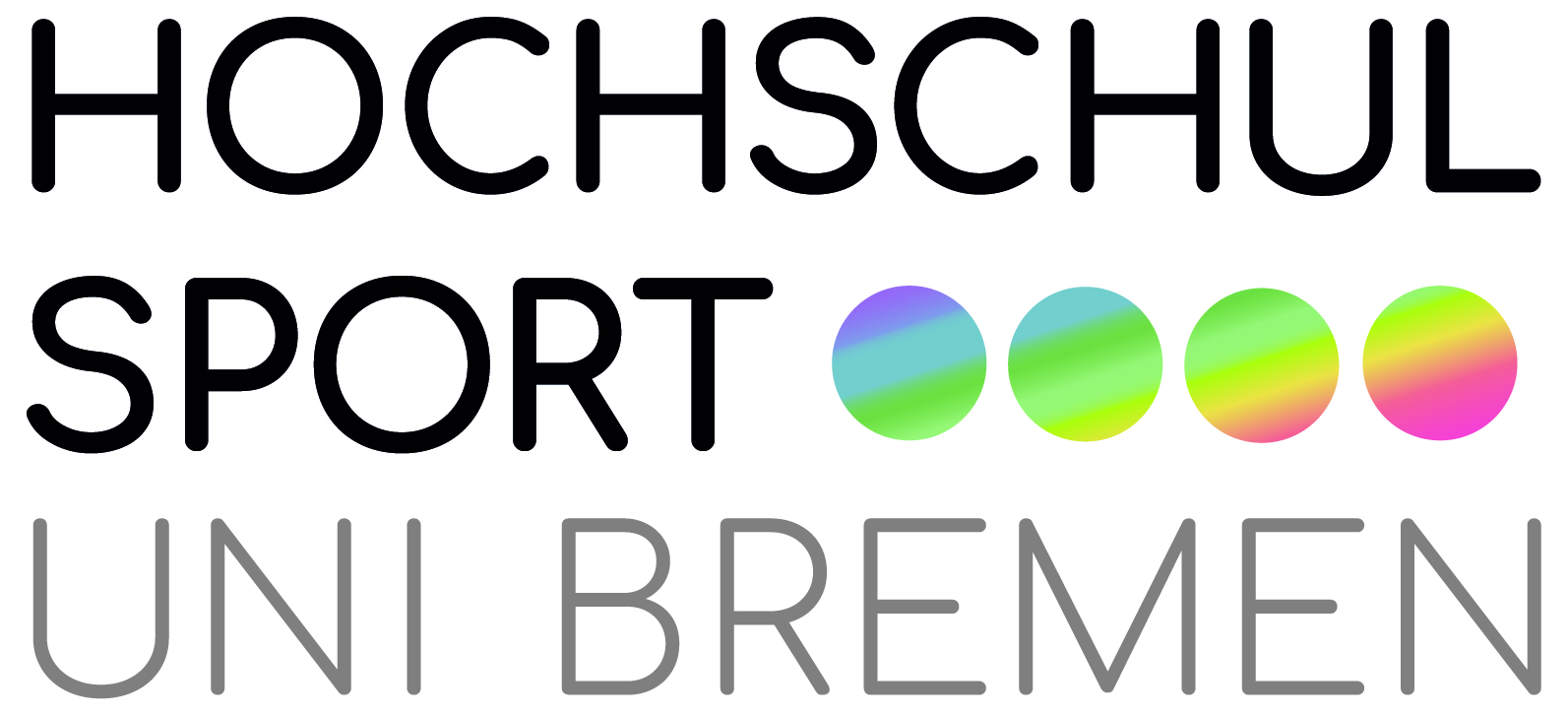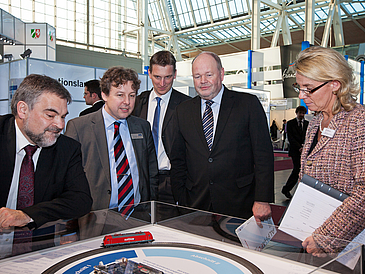CeBIT, hall 9, stand B50: Members of the University of Bremen will once again be present with their own stand at this year’s CeBIT exhibition which takes place from 5th to 9th March. Six projects from the fields of computer science, information technology and logistics have joined together to present their work to visitors at this major in the city of Hanover. The thematic spectrum encompasses the automatic translation of programming languages, 3D computer vision for logistics processes, the RFID-based transshipment of automobiles in port terminals, environment recognition for robots, smart homes, and end-to-end acquisition of brain activity. The stand will be manned by faculty as well as students and doctoral candidates of the University of Bremen representing the following institutes and research groups:
Research Group Computer Architecture - AGRA
The Research Group Computer Architecture (AGRA) is investigating how to simplify the design of complex electronic systems, hardware components and software while dispensing with the need for any specific expert knowledge of programming languages. AGRA will be illustrating how to implement the automatic translation of language into program code. This features above all state-of-the-art findings in the area of natural language processing. You can find more information under: www.informatik.uni-bremen.de/agra
Bremen Institute of Production and Logistics – BIBA
The BIBA will be presenting research findings in the area of 3D computer vision for the automation of logistics processes. Two of the software tools developed by BIBA for algorithms in the area of 3D image processing have been adapted to suit the specific requirements of logistics processes and evaluated on the basis of applied logistics scenarios. You can find more information under: http://www.biba.uni-bremen.de
Bremen Research Cluster for Dynamics in Logistics – LogDynamics
The interdisciplinary collaborative Bremen Research Cluster for Dynamics in Logistics (LogDynamics) combines fundamental and applied research with knowledge transfer and academic teaching at the interfaces between research and the economy. The researchers organized in LogDynamics are investigating to what extent it is possible to control the dynamics involved in logistics processes. At CeBIT they will be presenting an RFID-based automotive network – a model of a port terminal developed in a project named RAN. Visitors to the stand will be able to follow a moving model automobile through the entire logistics processes involved in automobile transshipment in a port terminal. You can find more information under: http://www.logdynamics.de/
System Design Research Training Group – SyDe
This is the first time that the research training group entitled “System Design” (SyDe) will be represented on the Bremen stand. SyDe offers young researchers pursuing their doctorate a structured and research-oriented program of academic training. The research training group was set up jointly in 2012 by the University of Bremen, the German Research Center for Artificial Intelligence (DFKI) and the German Aerospace Center (DLR). It was made possible by Excellence Initiative funding. Among other things, the group carries out research into enthralling topics like how the turnaround in energy policy impacts on the microchip, and the issue of "how can I teach a robot to sensually perceive its spatial surroundings?". You can find more information under: http://www.informatik.uni-bremen.de/syde
Networking the Smart Home via Standard Technology – Technology Center for Computer Science and Information Technology (TZI)
Under the motto “Research.Teach.Apply. – The different facets of technology transfer”, 17 students from the Technology Center for Computer Science and Information Technology (TZI) will be presenting their self-developed model of a modern smart home. Model intelligent homes in which everything can be operated from a smartphone are nothing new. However, it will still be a long time before they become a commercial success. This is because no uniform standards apply to the sensors or web and transmitting technologies needed to put the concept into practice. Undergraduate students in the TZI research group Rechnernetze [computer networks] working on their practical project called “GOBI” have developed a path breaking model based on standard open source technologies available to everyone. They have thus created a platform which everyone can plug into, including even small manufacturers of household components. Visitors to the CeBIT stand will be able to experience at first hand the opportunities opened up by the “internet of things”. You can find more information under: http://gobi.tzi.de/
Acquisition of Brain Activity
The Center for Cognitive Sciences (ZKW), the Microsystems Center Bremen (MCB) and the Technology Center for Computer Science and Information Technology present the project called “kalomed”. This project is investigating how the electrical brain activity of patients can be accurately and reliably documented over long periods of time. The wireless acquisition of local field potentials and the electrical stimulation of the cerebral cortex are of major significance for medical diagnostics and neuroprosthetics. For instance, such a breakthrough would enable physicians to monitor the brain activity of epilepsy patients around the clock and warn them of a pending attack or even to attenuate such an attack by means of electrical- or bio-feedback. You can find more information under: www.kalomed.info
For further information you can contact:
Universität Bremen
Konrektor für Forschung und wissenschaftlichen Nachwuchs
Prof.Dr. Rolf Drechsler
Phone: +49 421 218 63932
email: kon1protect me ?!uni-bremenprotect me ?!.de
or
Robert Wille
Phone: +49 421 218 63947
email: rwilleprotect me ?!uni-bremenprotect me ?!.de


